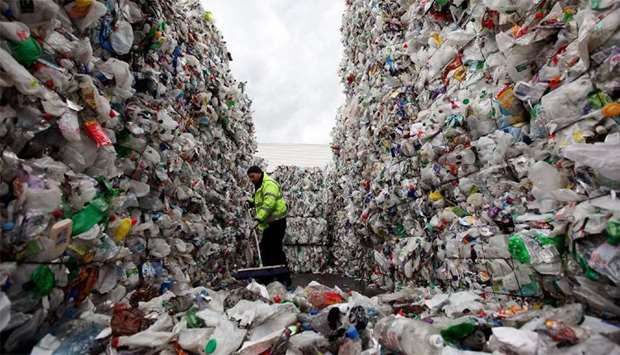EU regulators are searching for ways to increase recycling of plastic, as waste piles up in ports after China banned imports of ‘foreign garbage’ from the start of 2018.
Announcing a new policy push on Tuesday, European Commission Vice President Jyrki Katainen said Brussels is mulling a tax on plastic packaging, more curbs on throw-away items like plastic bags and new rules at ports among other restrictions.
‘We have all this raw material, and from the beginning of the year now even more, because China will not take our waste, but we don't know what to do with it,’ Katainen told reporters.
Oil-derived plastic mostly ends up in landfills or incinerated, with less than 30 percent of 25 million tonnes of plastic waste generated each year being recycled in Europe.
EU nations and European Parliament reached an agreement last month to set a legally-binding target for the bloc to recycle 55 percent of plastic packaging waste by 2030 and a ban on landfilling separately collected waste.
EU regulators now want to ensure that the plastic packaging itself is fully recyclable and to improve consumer labelling by creating new quality standards.
The Commission said it will introduce measures to curb ocean-polluting microplastics, such as those used in cosmetics. New port reception facilities will seek to streamline waste management to ensure less gets dumped in the Ocean.
‘More and more it is becoming a health problem because it is degrading, going to little chips, fish are eating it and it is coming back to our dinner table,’ Katainen said.
Before the ban, China was the world's dominant importer of plastic waste. A senior EU officials said he now expected the waste to go to other countries in Southeast Asia, such as Vietnam and Malaysia.

